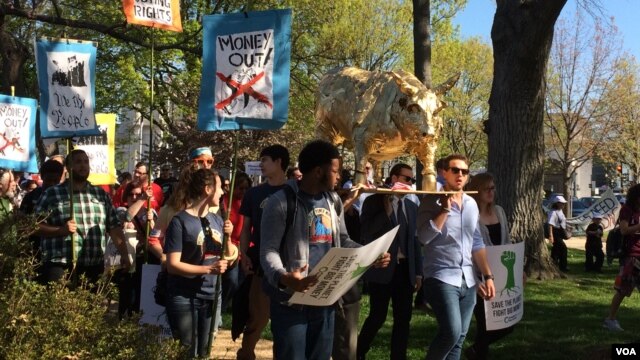Both experiences point to the limits of big money in U.S. politics, at least in the 2016 election cycle. But some political experts and most average Americans nonetheless see growing financial influence – which can vary with the primary or general election, increase further down the ballot and shape policies affecting daily life. Americans of all stripes agree that money holds greater sway than ever, and the effects are mostly negative, a Pew Research Center survey found. The center reported in December that "large majorities favor limits on campaign spending and say the high cost of campaigning discourages many good candidates from running for president." "There’s no country with longer and more expensive elections than the United States," said Ken Goldstein, a University of San Francisco professor and political advertising expert.
Campaigning for the presidency begins well over a year out; Republican Ted Cruz was the first to announce his candidacy in March 2015. Spending in 2012 — the election cycle that included the last presidential race — topped $6.3 billion, the watchdog Center for Responsive Politics calculated. This election cycle is expected to set records in spending by campaigns, political parties and outside interest groups, the center has forecast. As of late May, candidates and the super PACS (political action committees) backing them raised more than $1.2 billion, according to campaign filings. Former Secretary of State Hillary Clinton's campaign alone generated nearly $85 million, and supporting super PACs raised more than $204 million.

Demonstrators march on the U.S. Capitol to oppose big money in politics in Washington, D.C.
Real estate magnate Donald Trump largely has self-financed his campaign, but last month made a joint fundraising deal with the Republican National Committee enabling rich donors to contribute up to $500,000 apiece. He initially said he needed to raise $1 billion for the general election, but he has since scaled back. His aides are expected to meet in coming days with those of billionaire industrialist Charles Koch, USA Today recently reported. The powerful Koch network of donors and policy developers may bypass the presidential contest — chafing at Trump’s stated opposition to free trade deals, for example — to focus on helping Republicans retain Senate control.
Concerns down the ballot
Norman Ornstein, a political scholar at the conservative American Enterprise Institute, said he doesn’t “look at presidential politics as the be-all and end-all of the campaign funding system.” Candidates for the nation’s top office already have “an enormous amount of name recognition” and extensive media coverage that lessen the impact of campaign spending on advertising. More worrisome is what happens further down the chain — in congressional, legislative and local contests, he said. Ornstein told VOA that “a whole bunch of senators” had privately divulged their fears about voting for legislation that could antagonize big donors. “The part that troubles me most is judicial elections,” he added, noting heavy partisan spending aimed at tilting the composition of state Supreme Courts in Wisconsin and North Carolina. Ornstein speculated that a judge “may think twice” in deciding a case involving a giant corporation or wealthy individual whose support might be vital in future elections.
Landmark court decisions



 Reply With Quote
Reply With Quote

